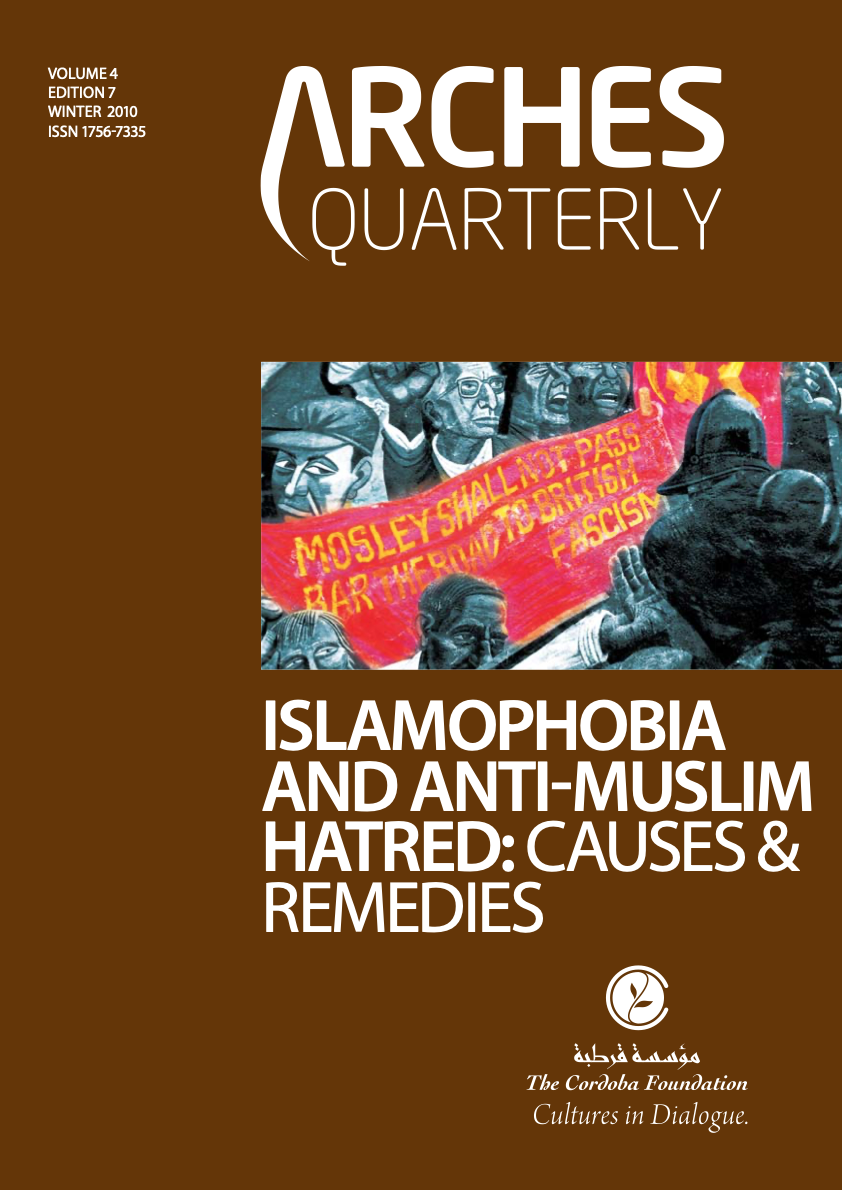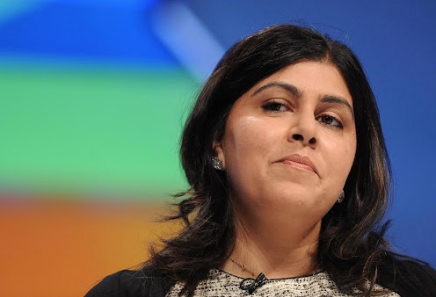
Occasional Papers: Qur’anic Concepts of the Ethics of Warfare
This issue explores the ‘ Qur’anic Concepts of the Ethics of Warfare: Challenging the Claims of Islamic Agressiveness‘ written by Dr Joel Hayward, the Dean of the Royal Air Force College and Co-Director of the Royal Air Force Centre for Air Power Studies, Kings College London.
OP_Series02_07_Islam and Freedom of Speech

Press Release: Cordoba Foundation CEO visits Egypt for Exploratory Mission
Anas Altikriti, Chief Executive of The Cordoba Foundation (TCF) has arrived in Cairo today to conduct exploratory consultations with civil society and political leaders following the ousting of Hosni Mubarak as President of Egypt .
Commenting on his visit, Altikriti explains that “the mandate of The Cordoba Foundation amongst other things is to facilitate a space for people with opposing ideas to come and explore ways of working together. We are hoping that we would be able to make constructive contributions in Egypt to help navigate Egyptian civil society to move forward towards a more stable future“.
TCF believes Egypt is facing a new and exciting future as a result of people’s power as recently evidenced in the streets of the country. “It is important that ordinary Egyptians are able to exercise their democratic rights, and determine their own future — free from external influences” added Altikriti.
The future of Egypt, like other countries where people are demanding an end to despotic rule and dictatorships, should foster political and religious pluralism to creating a more inclusive and cohesive society.
TCF will continue its dialogue with the main stakeholders involved in events unfolding in Egypt in order to ensure a peaceful outcome that meets people’s aspirations and ensures a smooth transition to a better and more human reality.

Press Release: Approaches to Tackling Terrorism and the Question of Multiculturalism
The Cordoba Foundation (TCF) welcomes the publication of ‘The Edge of Violence‘ by DEMOS, which suggests a ‘radical’ approach to tackling home grown terrorism. The report which defines ‘radical’ as the ‘rejection of the status quo’ lays bare the myth that radicalisation is a linear path to violence and terrorism. As the report argues; ‘differentiating between types of radicalisation is extremely important because targeting the wrong people can breed resentment and alienation and erode the freedoms Western governments want to preserve’.
Using a combination of literature reviews and interviews across 5 countries (UK, Canada, Denmark, France and the Netherlands), the report seeks to cast light on how and why some types of radicalisation develop into violence and others do not; how the different types relate to each other and what implications this has for social and security policy. The report comes up with the following 3 recommendations stakeholders will find useful in addressing the challenges in question: encouraging positive activism, demystifying and de-glamourising Al-Qaeda as a structure and an ideology and encouraging a greater role for the involvement of non-governmental actors.
Commenting on this, Anas Altikriti, Chief Executive of TCF said: “This report is timely because it reminds us of the key complex issues that we are facing. Unfortunately, the discussions that have emerged from the weekend following David Cameron’s speech in Munich have been focused on one aspect: the failure of multiculturalism. It is all very well to abrogate responsibility to a single issue, but the real issue is that problems are not one-dimensional and do not belong to just one community. Social problems cannot be viewed through a security lens. We welcome DEMOS’ recommendation in particular that space needs to be provided for discussions and dialogue to take place in order to counter some of the established narratives”.
TCF believes that the issues facing the Muslim communities – both internally and externally- are multi layered and replicated in other immigrant ethnic and faith communities and thus cannot simply be written off as a failure of multiculturalism. Adequate attention needs to be paid first to normalising social structures whilst at the same time providing a space for establishing dialogue and facilitating partnerships that will give communities the confidence they need to address their real concerns. This needs the involvement of all stakeholders in society without exception to ensure the promotion of respect, understanding and acceptance of diversity.
This is indeed the challenge for the Big Society to overcome.

Press Release: Middle East Protests Represents Opportunity to do Something Right
The wave of popular uprising sweeping the Middle East is indicative of a rising empowerment of people dissatisfied with decades of corruption, poverty, lack of democracy and the freedom of expression.
Commenting on this, Anas Altikriti, Chief Executive of The Cordoba Foundation (TCF), said “What we are seeing is a raw and basic example of people power that has come to symbolise turning points in world history. The people can be pushed into a corner so far until they start pushing back”
TCF endorses the appeal made on 27th January of more than 2200 Arab scholars, politicans, activists, from over 20 Arab countries, issued an ‘URGENT APPEAL’ to the US Administration for the defence and consolidation of human rights and democracy in the Arab world. TCF also appeals to other Western governments and institutions to support the popular movements against the embattled regimes. According to Altikriti, “We in the West also have to bear the brunt of responsibility for sowing the seeds of discontent that led to these riots. We have continuously supported these illegitimate regimes who have suppressed and tortured their own people leading them to extreme poverty whilst the ruling elite lived in luxury. We cannot simply pursue our interests at the account of suppressed and subjugated nations, and assume that there will not be a backlash“.
It is clear that these demonstrations have culminated in the emergence of a new ‘people-based’ power throughout the Arab region, which calls for an open dialogue to be developed ifor the futures of the region and its relatoinship with the West. As a result, Britain and the West’s responsibility comes from seizing the opportunity to create new dynamics for this relationship based firmly on the essential support for the Arab people and their political aspirations.
The Cordoba Foundation calls for:
- All stakeholders (including leading dissidents; exiled figures; women,student and youth leaders; civil society leaders; academics; business leaders; religious leaders) to be involved in a serious and open dialogue of mutual recognition which involves all strands of political, social, cultural, ideological and religious life. It is of great concern that already some commentators from Britain and elsewhere are calling for the exclusion of some groups from any future discussions thereby not only betraying a naive comprehension of the root causes of unfolding circumstances on the ground but also ensuring challenges for peaceful future Arab-Western relations.
- A sufficient space to be provided and facilitated for these discussions to take place without any external interference. TCF strongly believes that given the space and support, people will be able to find the solutions to their own problems and thus we should not attempt to ‘influence’ outcomes according to our desires and preferences.The exiled political figures and dissidents who have spent invariably lengthy periods of time abroad and particularly in the UK, to be urged to unite with the popular tide within their respective homelands in setting a national agenda for progress and are made use of and fully included in the process of rebuilding their countriesThe British Government and Western Governments in general, to support the development of these countries through supporting the people’s choice in ensuring a smooth transition towards better governance and democratic principles as well as providing aid to support the people who have suffered during these tough times.
The Cordoba Foundation, in its vision of thriving and striving for the common goal of understanding, celebrating, respecting and accepting diversity, will continue its dialogue with the main stakeholders involved in events unfolding throughout the countries of the Arab region in order to ensure a peaceful outcome that meets the peoples’ aspirations and ensures a smooth transition to a better and more human reality. TCF will also continue to advise various governments throughout Europe and beyond on methods that are best in dealing with the present fluid situation and its possible outcomes.
Seminar: Contextualising Islam in Britain

Arches Quarterly: Vol 4 Edition 7 (5MB)
A quarterly journal providing deeper and nuanced analysis of the issues and developments in the arena of dialogue, civilizations, and a rapprochement between Islam and the West
In this edition, Arches Quarterly responds to the rising levels of anti-Muslim hatred across the globe. Commonly referred to as ‘Islamophobia’, contributors discuss among other things, conceptual challenges posed by the term, the location of it in the racial imperial -colonial matrix and by providing examples from across the world, show that it is a reality in today’s climate. The issue also explores the responsibility of Muslim civil society to combat internal and external challenges.

News Release: Baroness Warsi’s Speech on Islamophobia – Welcome First Step
The Cordoba Foundation (TCF) welcomes the speech made yesterday by Baroness Sayeeda Warsi, Co-Chairman on the Conservative Party, at Leicester University, raising concerns about the growing anti-Muslim prejudice in Britain.
Anas Altikriti, TCF Chief Executive, said that Baroness Warsi’s speech “resonated with ordinary Muslims in Britain who privately or publicly experience anti-Muslim hatred with often no recourse to public support. Warsi’s statement is proof that present day racism is still very real in the form of Islamophobia and it ultimately tests the fundamental values that are dear to our society. Such a statement goes a long way towards providing people with the confidence they need that they are not somehow outcast from society”
In these times of austerity, there is a need to revisit faith and spirituality in order to ensure that community relations are strengthened and those that are more vulnerable and without a voice are looked after. TCF hopes that the speech yesterday marks the start of a genuine and open debate that changes the narratives and attitudes of hate, fear and distrust between cultures and communities. In particular, “there needs to be a proactive first step taken by the government in this regard to show that it is also serious about accomodating diversity and tackling Islamophobia in all its manifestations” added Altikriti.
The Cordoba Foundation stands proud in its vision of facilitating the meeting of minds with the aspirations for cultures, civilisations, thoughts and lifestyles to thrive and strive for the common goal of understanding, celebrating, respecting and accepting diversity.


